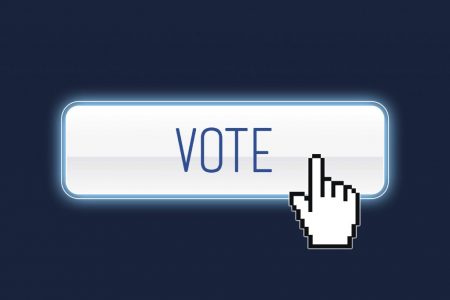September 6, 2018 – The Japanese city of Tsukuba, lying to the north of Tokyo, and with a population of under a quarter million, has used blockchain technology for an election held on August 28th.
Every constituent was asked to bring their 2015 issued 12-digit ID My Number Card to the voting stations. The IDs were read by a card reader to validate identity and allow voters to enter preferences on a computer-displayed ballot.
All constituents were issued passwords as an additional precaution. The biggest problem faced by voting officials was that people forgot passwords which required a series of security questions before new passwords could be issued.
The blockchain technology verified votes cast and provided an accurate tabulation of all of the election data which was a little more complicated than just casting a ballot for a slate of candidates. In this case, Tsukuba voters were asked to cast ballots for one proposal among a group of projects for funding. These included:
- an initiative to build a new cancer diagnostic centre,
- a new research and development sharing centre,
- a number of programs dedicated to dealing with dementia,
- a tourism initiative, new outdoor sports facilities including the building of a smart arena,
- a hearing map for the city to allow visitors to receive information broadcasts about sites and shops,
- improvements to the regional disaster prevention program using artificial intelligence software and satellite communications,
- a new program to assess citizens monitoring their own health signs through the deployment of digital devices as a means to reduce medical expenses.
Tsukuba is known in Japan as a centre for scientific research, which made it an excellent choice for testing blockchain technology to manage a vote.
So how does blockchain voting differ from other methods?
- A blockchain voting system requires voter ID, an identity verifier (in this case the 12-digit ID), and an electronic ballot matching the voter ID.
- Upon voting the ballot is submitted to an online blockchain-based ballot box.
- The voter receives a receipt (either electronic or printed).
- The voter can go online to ensure that their vote has been counted.
- The voter may also be able to audit all ballots cast which the system anonymizes.
- The voter can view vote totals in real-time.
- In some blockchain voting systems that allow it, a voter can submit a ballot before the election date deadline, and if he or she changed preferences, could go back online to remark the ballot. In this case, only the last ballot entry is counted.
Why does using blockchain technology make election processes better?
- Convenience is one key. A voter can cast a vote from anywhere on a mobile device using the secure voter ID, PIN, and electronic ballot.
- Cost reduction is another. The cost of running an election using electronic ballots and online access should be demonstrably less.
- Making it easier to vote should increase voter participation.
- Counting votes and the accuracy of those counts will be far better than what we have today.
- Election results will be completely transparent to all voters.
There are a number of new startups developing blockchain voting technology. You can check out the organizations and links provided here.
- Agora
- Democracy Earth
- DemocracyOS
- EasBit
- e-Vox
- Follow My Vote
- Milvum
- NEM
- Polys
- Voatz
- Votem
- VotoSocial
- VoteWatcher
Where is blockchain voting technology being deployed?
- In Colombia, a digital voting process employing Democracy Earth was implemented for expatriates to vote online in the plebiscite to approve the peace treaty between the government and FARC.
- In March this year, Sierra Leone used Agora in its national elections.
- In the recent primary elections in May, the state of West Virginia used Voatz successfully and now intends to use smartphone access voting at the upcoming November mid-terms.
- In June this year, the city of Zug, Switzerland implemented blockchain voting via smartphones.
- In August, Ukraine held a trial vote using NEM’s blockchain.
- And Kenya has announced plans for a real-time ballot using blockchain.
As these jurisdictions results have shown, blockchain voting technology is proving to be a gamechanger. I suspect by the 2020s, the vast majority of countries running elections will deploy the blockchain as the primary means by which they run the votes.









